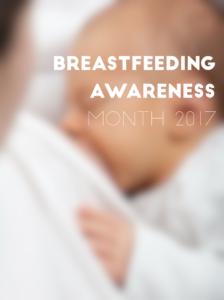In the 3rd article in a series, Connecticut Women’s Rights Lawyer Jack Tuckner explains how Connecticut breastfeeding laws apply to working mothers.
Breastfeeding Awareness Month 2017
Women’s Rights in the Workplace Series—Part III
Breastfeeding in Connecticut
By Jack Tuckner, Esq.
In the 2nd blog in this special women’s rights in the workplace series for breastfeeding awareness month, I discussed New York’s several nursing-friendly laws that encourage and protect breastfeeding moms from interference with such a natural and essential post-partum activity.
As an attorney admitted to practice in Connecticut as well as New York, I’m relieved to report that CT is not only as friendly to nursing moms and babies as NY is, but it’s even friendlierJ.
The CT law governing breastfeeding and expressing breast milk at work requires all employers in the state to provide a reasonable amount of time each day for you to express breast milk for your infant child—at your discretion–and the company must provide a place of accommodation where you can privately express breast milk, and such private place cannot be a toilet stall.
When possible this milk expressing activity should occur on your meal or other work break, but if it occurs at another time the employer is not obligated to pay you during the pumping break.
A CT company is not permitted to discriminate against, discipline or take any adverse employment action because you’ve elected to exercise your right to express milk at work.
An “employer” is any business with one or more employees, including the state and any political subdivision of the state. Your employer must use “reasonable efforts” to create this private space for you to express breast milk or to breastfeed your baby, unless such an accommodation would impose an “undue hardship” on your company’s business, but the employer would have to demonstrate that creating this private milk expressing space for you would require significant difficulty or expense when considered in relation to factors such as the size of the business, its financial resources and the nature and structure of its operation. That’s not so easy to show.
What about when you’re not at work or at home? Can you safely breastfeed then? Yes, of course, as another CT law prohibits “places of public accommodation, resort or amusement” from restricting or limiting the right of a mother to breastfeed her baby or child. And places of public accommodation are essentially anywhere in CT that isn’t restricted private property.
How about this cool CT law that’s unique to the Nutmeg State. Under the title, Offenses Against the Person, Deprivation of the Right to Breastfeed One’s Child, this bad boy CT law says that no individual person may restrict or limit the right of a mother to breastfeed her child. Bazoom!
Breastfeeding and looking to get out of jury duty? CT hears and feels you, sister, and they’re all over it. The state will permit you to postpone your annoying jury service for up to one year if you’re breastfeeding your child or even if you just need to express breast milk during the day.
It’s fully accepted among health professionals that breastfeeding improves infant health, as breast milk contains antibodies that protect babies from bacteria and viruses, so breastfed babies have fewer respiratory and urinary tract infections, and breastfeeding provides long-term preventative effects for moms, too, including an earlier return to your pre-pregnancy weight and a reduced risk of pre-menopausal breast cancer. And don’t forget the mom/baby bonding time.
So, as important as breastfeeding your baby and/or expressing breast milk is to your health as well as your baby’s, it’s great to know that there aren’t too many places in CT where you can’t breastfeed or express milk—unless you’re trespassing on private property–where you and your baby (and your breast milk) don’t belong, you are otherwise expressly authorized to breastfeed or express breast milk at will and as often as necessary, at your complete and sole discretion.
Jack Tuckner is co-founder of Tuckner, Sipser, Weinstock & Sipser, LLP, with offices in NYC and Poughkeepsie, NY, where he focuses on workplace law helping clients facing discrimination due to pregnancy and other sex-specific challenges such as sexual harassment and gender pay disparity. He has successfully tried over twenty-five cases to verdict before juries, including a women’s workplace rights victory that resulted in a million-dollar jury award against the Defendant. He has also obtained significant settlements for clients without resorting to the need for protracted court battle. Jack is the author of Women’s Rights in the Workplace, and he provides continuing legal education seminars for attorneys on pregnancy discrimination.
For any specific workplace rights questions, you can reach Jack Tuckner by phone at 212.766.9100, or by email at [email protected], or you can tweet Jack at @jacktuckner.
